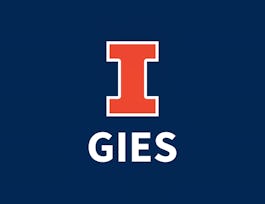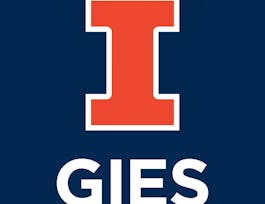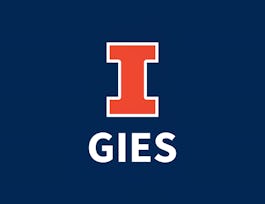Thriving in the Information Age compels organizations to deploy information as an actual business asset, not as an IT asset or merely as a business byproduct. This demands creativity in conceiving and implementing new ways to generate economic benefits from the wide array of information assets available to an organization. Unfortunately, information too frequently is underappreciated and therefore underutilized.


Infonomics I: Business Information Economics and Data Monetization
This course is part of multiple programs.
Taught in English
Some content may not be translated

Instructor: Douglas B. Laney
10,766 already enrolled
Included with 
Course
(94 reviews)
What you'll learn
Appreciate the unique economic, accounting, and legal characteristics of information.
Understand and apply methods for conceiving and generating broad-based and transformative business benefits from available information assets.
Identify and adapt traditional asset management principles and practices toward the improved management of information assets.
Measure information’s various value characteristics to help justify or prove information-related expenditures.
Skills you'll gain
Details to know

Add to your LinkedIn profile
32 quizzes
Course
(94 reviews)
See how employees at top companies are mastering in-demand skills

Build your subject-matter expertise
- Learn new concepts from industry experts
- Gain a foundational understanding of a subject or tool
- Develop job-relevant skills with hands-on projects
- Earn a shareable career certificate


Earn a career certificate
Add this credential to your LinkedIn profile, resume, or CV
Share it on social media and in your performance review

There are 5 modules in this course
You will become familiar with the course, your classmates, and our learning environment. The orientation will also help you obtain the technical skills required for the course.
What's included
3 videos7 readings1 quiz1 discussion prompt
In this module, we are focusing on the definition of Infonomics. You will learn about the difference among Information Technology, Information Economics, and Infonomics.
What's included
6 videos2 readings6 quizzes
In this module, you will learn why information should be considered an asset. You will also learn about unique properties of information that make it different from valuable physical assets, such as oil, to which it is very often compared in the modern world to indicate the value it possesses.
What's included
9 videos2 readings9 quizzes
In this module, you will read many real-life cases that deal with monetizing information, such as Walmart optimizing search results to increase customer acquisition and retention, Trulia training neural networks to create a supplemental revenue stream, and DBS Bank developing a data solution to improve business performance. Throughout all these examples and cases, you will have a clear look at how organizations benefit from monetizing information.
What's included
15 videos2 readings10 quizzes1 peer review
Through this module, you will learn about the three “Vs” of big data and how each of them affects the analytics that can be applied to your information assets and how they could be used to generate insights, recommendations, and prescriptions that can add direct economic value to the organization, i.e., how the information assets can be monetized.
What's included
5 videos4 readings6 quizzes
Instructor

Recommended if you're interested in Business Essentials

University of Illinois at Urbana-Champaign

University of Illinois at Urbana-Champaign

University of Illinois at Urbana-Champaign

University of Illinois at Urbana-Champaign
Get a head start on your degree
This course is part of the following degree programs offered by University of Illinois at Urbana-Champaign. If you are admitted and enroll, your coursework can count toward your degree learning and your progress can transfer with you.
Why people choose Coursera for their career




Learner reviews
Showing 3 of 94
94 reviews
- 5 stars
72.63%
- 4 stars
23.15%
- 3 stars
1.05%
- 2 stars
0%
- 1 star
3.15%
New to Business Essentials? Start here.

Open new doors with Coursera Plus
Unlimited access to 7,000+ world-class courses, hands-on projects, and job-ready certificate programs - all included in your subscription
Advance your career with an online degree
Earn a degree from world-class universities - 100% online
Join over 3,400 global companies that choose Coursera for Business
Upskill your employees to excel in the digital economy
Frequently asked questions
Access to lectures and assignments depends on your type of enrollment. If you take a course in audit mode, you will be able to see most course materials for free. To access graded assignments and to earn a Certificate, you will need to purchase the Certificate experience, during or after your audit. If you don't see the audit option:
The course may not offer an audit option. You can try a Free Trial instead, or apply for Financial Aid.
The course may offer 'Full Course, No Certificate' instead. This option lets you see all course materials, submit required assessments, and get a final grade. This also means that you will not be able to purchase a Certificate experience.
When you enroll in the course, you get access to all of the courses in the Specialization, and you earn a certificate when you complete the work. Your electronic Certificate will be added to your Accomplishments page - from there, you can print your Certificate or add it to your LinkedIn profile. If you only want to read and view the course content, you can audit the course for free.
If you subscribed, you get a 7-day free trial during which you can cancel at no penalty. After that, we don’t give refunds, but you can cancel your subscription at any time. See our full refund policy.

